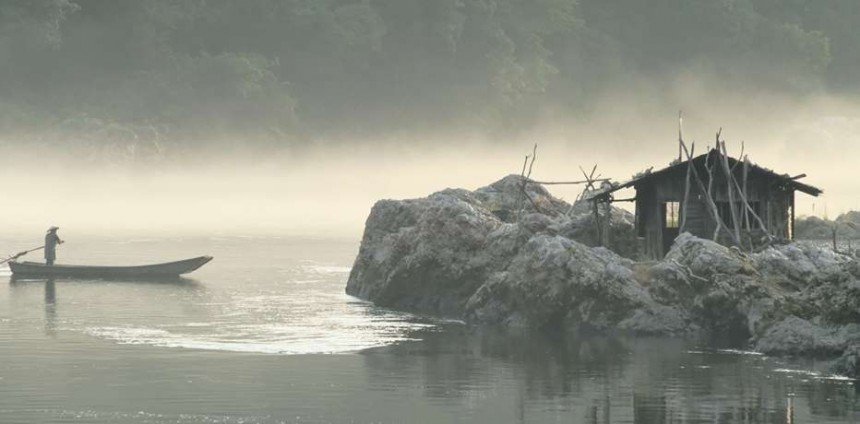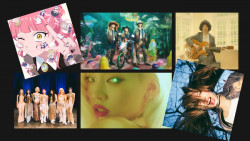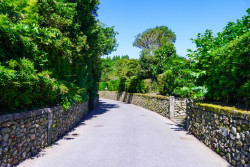
This directorial debut by acclaimed Japanese actor Joe Odagiri is beautifully shot by genius cinematographer Christopher Doyle and meticulously directed by a man many consider the finest actor of his generation. It’s set some time in the Meiji era (1868–1912) and as such, Odagiri assumes a languorous pace that informs the entire work. Set on a river in the countryside, mist inches over the hills and birds meander through the skies as the water rolls on. The natural setting and lack of anything remotely modern (minus a bridge in construction) puts viewers in a distinct headspace. It’s no wonder that this remarkable film had its world premiere at the Venice Film Festival in 2019.
The story concerns Toichi (Akira Emoto), an old boatman who has brought people across the river for decades. He lives alone in a hut by the water and subsists on catching fish and buying rice with his meager earnings. Occasionally, he’s visited by the young Genzo (Jun Murakami), a twenty-something who seems to have more enthusiasm than intelligence. Toichi’s service to the community is such that everyone knows him and hunting families appreciate his efforts to get them where they need to go. Just upstream, however, a massive modern bridge is being built that will render Toichi jobless, but the boatman approaches that reality with his usual diffidence.
One day, Toichi fishes an apparent corpse out of the river but Fu (Ririka Kawashima) is actually alive. After recovering, the teenage girl decides to stay in Toichi’s hut. The boatman learns that her family was massacred in a town up river, but no one is really sure. At the same time, Toichi starts to see a ghost who, while not threatening, seems displeased with the simple river worker. The girl, who claims to have amnesia, starts to help out and their friendship blossoms, despite the mystery surrounding who she is and where she came from.
The languid pace tricks the viewer into feeling like nothing is happening, but as the title states, the world is slowly changing. Progress encroaching on nature and traditional lifestyles, as well as the dark side of village life are apparent themes. The work is somewhat reminiscent of Shohei Imamura’s masterpiece The Profound Desire of the Gods (Kamigami Fukaki Yokubo, 1968). Slow, deep and rolling, the film mirrors the river and life which flows before us.
Japanese title: Aru Sendou no Hanashi
137 minutes
Now screening at Shinjuku Musashinokan
3-27-10 Shinjuku, Shinjuku-ku
shinjuku.musashino-k.jp







